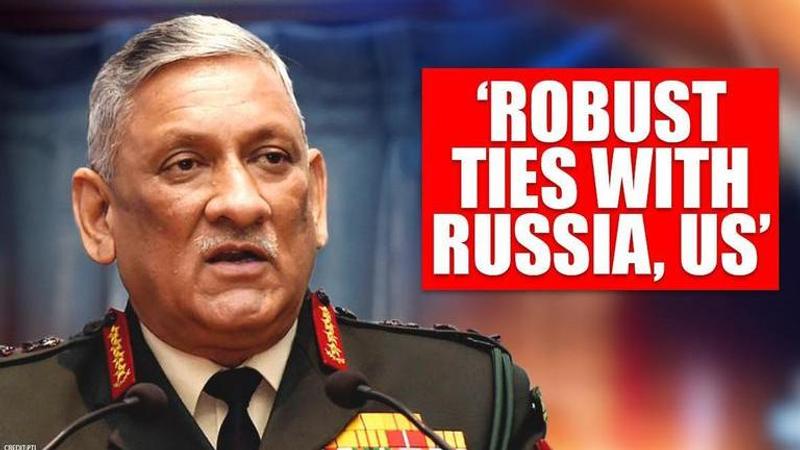Published 09:52 IST, September 6th 2020
India's security wil be maintained in extended neighbourhood apart from borders: CDS Rawat
CDS General Bipin Rawat said on Saturday that India's security would not only be maintained International Border, LAC & LOC, but also in extended neighbourhoods

Amid the growing volatility on the Line of Actual Control with China and nefarious Pakistan’s regular attempts of intrusion, Chief of Defence Staff General Bipin Rawat said on Saturday that India's security would not only be maintained on International Border, Line of Control or the Line of Actual Control but also in the strategic space of the "extended neighbourhood" and the "strategic frontier".
Addressing a symposium on 'emerging defence exports', he said India values its growing relationship with the US and also cherishes its traditional relationship with Russia. He said India shares "a mature and robust defence and security framework" with the two powers.
The CDS said the armed forces will have to work through the budgetary constraints by finding the best solutions through new acquisitions and optimisation considering the macro-economic parameters.
'Threat from disruptive technologies'
He referred to the proposed reforms in the military structure and said the Chief of Defence Staff and the theatre commanders would "conjointly" provide "unity of command" while the service headquarters and the "component commanders" could provide "unity of effort".
In a major reform in the military framework, India is working on setting up of a number of theatre commands, integrating some of the commands of the three services, to deal with future security challenges that will be faced by the country.
"In the emerging security paradigm, India's security would be maintained not, as hitherto, on the IB, LC or the LAC alone, but in the strategic space of the ''extended neighbourhood'' and the 'strategic frontier'," he said without elaborating further.
His statement seemed to be in reference to India's evolving security relations with a number of countries in its extended neighbourhood like Indonesia, Singapore and several countries in the Gulf region in the last few years.
The CDS also said the disruptive technologies like artificial intelligence, robotics, big data analytics, drone technology, the militarization of space, quantum communications, along with manipulation of social media are the factors that are leading to new threats and further complicating the security environment.
He said the advantages created by unmanned aerial vehicles (UAVs) are being seen as opportunities by the non-state actors, adding future defence systems must be qualitatively and quantitatively capable of dealing with the new threats.
"In this era of multidimensional technology, we must focus on constant innovations and modern technological solutions, to keep ourselves ahead of the adversaries," he said.
(With inputs from Agencies)
Updated 09:52 IST, September 6th 2020




